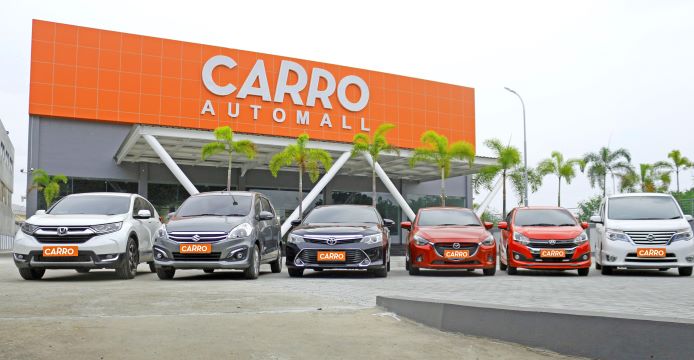The car trading platform Carro expands its collaboration with Tokopedia. Recently, the collaboration that was formed in 2020 has provided more than 50 payment options for purchasing certified used cars on Tokopedia.
In recent contact with DailySocial, Carro’s Co-founder, Aditya Lesmana said consumers can enjoy more flexible financing options at Tokopedia. Carro is working with a number of finance companies in Indonesia to facilitate the payment options, both cash and credit with various types of down payment (DP) tenors, and the desired insurance.
“Last year was a year full of challenges for us. However, the Covid-19 pandemic has actually triggered the automotive industry to innovate. We are taking strategic steps, one of which is with Tokopedia. This has had a positive impact where the demand for certified used cars has jumped up to 600%,” Aditya said.
In July 2020, Carro expanded access to certified used car purchases by opening Carro Automall through the Tokopedia platform. This collaboration allows more than 100 million active Tokopedia users to view and buy certified used cars on the platform.
For Aditya, the trend of contactless car purchases has increased 100% from month to month. As of September 2020, three out of ten cars were sold, through the contactless process. With the increasing trend of online car purchasing, Carro keeps the door open for collaboration with marketplace platforms in Indonesia.
“Sales of new used cars show a positive trend, especially in the midst of a pandemic. This change has an impact on the automotive sector in Indonesia in line with the increasing online demand for cars,” he said.
Apart from financing options, Carro also announced a new chapter by entering a new car market segment. This step was taken in line with optimism for Indonesia’s economic growth this year.
Quoting data from the Association of Indonesian Automotive Industries (GAIKINDO), Aditya said that domestic sales of new cars are predicted to reach 750 thousand units in 2021. This has taken into account Indonesia’s economic growth potential which is projected to grow by 3% -4%. GAIKINDO also believes that people’s purchasing power for new cars is to improve this year.
“We are optimistic that the automotive industry in Indonesia and Southeast Asia, both the used car and new car market sectors, will recover in 2021. Technological advances, collaboration, and adaptation made by various stakeholders in the automotive industry to develop online businesses will encourage car sales,” he explained.
He considered that the automotive industry continues to develop and transform over time. Transactions through digital platforms certainly make it easier for consumers to find out more detailed product information, prices, payment options, features, and complete car history.
Meanwhile, in a written statement, Tokopedia’s AVP of Business David Kartono said the partnership with Carro is an ongoing effort to encourage all opportunities for the Indonesian people. He expects this collaboration can help promote economic recovery in Indonesia through digital platforms.
Carro is a car buying and selling platform in the Southeast Asia region with transactions of more than $1 billion in 2019. The company offers the convenience of buying cars with online transactions and checking cars offline at Carro Automall located in Bekasi.
Carro claims the Automall is the largest certified used car showroom in Indonesia. In addition, it also offers contactless sales of used cars and trade in new cars from various brands on its platform. In order to improve the offline experience before consumers make transactions, Carro also provides a test drive facility that can be ordered through the Carro and Tokopedia platforms.
This startup was founded in 2015 and used the C2B and B2C business models where consumers can sell used cars through the Carro platform and offer them to consumers. In this vertical, Carro competes with a number of players, such as OLX Autos and Carsome.
–
Original article is in Indonesian, translated by Kristin Siagian
